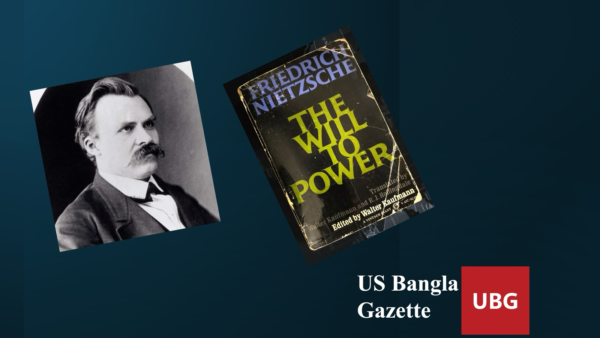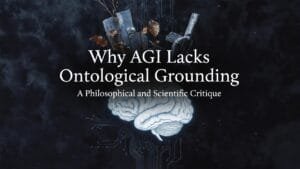The Will to Power: Nietzsche’s Central Concept of Becoming, Not Being

Friedrich Nietzsche, one of the most influential philosophers of the 19th century, is best known for his radical rethinking of values, morality, and the nature of existence. Central to his philosophy is the concept of the Will to Power, a dynamic principle that underpins human behavior and the essence of life itself. Nietzsche’s Will to Power is often misunderstood as a mere desire for dominance or control. However, it is a multifaceted and profound idea encompassing various dimensions of human psychology, metaphysics, and ethics. This article explores Nietzsche’s Will to Power, its implications for human nature, and its role in shaping his broader philosophical framework.
The Concept of the Will to Power
The Will to Power is a concept Nietzsche first introduced in his later works, particularly in Thus Spoke Zarathustra(1883) and Beyond Good and Evil (1886). Nietzsche described the Will to Power as a fundamental drive that governs all living beings. It is not merely a desire for power in the political or social sense but a broader, more existential force that manifests in various forms of striving, creation, and self-assertion.
At its core, the Will to Power refers to the intrinsic will of all life to assert itself, grow, expand, and dominate in its particular context. Nietzsche argues that all living organisms, from the simplest to the most complex, are driven by a basic impulse to overcome obstacles, shape their environment, and assert their individual identity. This drive is not inherently violent or destructive; rather, it is a force of self-affirmation, the urge to enhance and expand one’s existence in the world.
The Metaphysical Dimension of the Will to Power
Nietzsche’s philosophy rejects traditional metaphysical and theological frameworks that have long governed Western thought. For Nietzsche, the Will to Power is not just a psychological or ethical principle; it is a metaphysical foundation for reality itself. In his later writings, he suggests that the universe is not a static, determinable entity but a dynamic interplay of forces. The Will to Power is the fundamental force that drives these forces in constant flux.
Nietzsche’s rejection of traditional metaphysics, particularly the idea of a fixed, objective reality, means that he does not view the world as governed by eternal truths or absolutes. Instead, reality is understood through the lens of competing forces, each driven by their respective wills to assert themselves. This perspective leads Nietzsche to question the traditional metaphysical dualities such as good versus evil, mind versus body, or spirit versus matter. The Will to Power collapses these dichotomies, revealing a more fluid and interconnected worldview where power dynamics are the central concern.

The Will to Power and Human Psychology
In Nietzsche’s view, the Will to Power is intrinsic to human psychology. It is the underlying force behind all human striving, whether in the realms of creativity, ambition, or personal development. Nietzsche’s psychological analysis suggests that every human being is motivated by the desire to express and expand their individual potential. This drive is not simply about dominating others or achieving external success but about self-mastery and self-actualization.
For Nietzsche, the Will to Power is often in conflict with the traditional social and moral constraints imposed by society. These constraints—derived from religious doctrines, cultural norms, or social expectations—limit the individual’s ability to express their true potential. Nietzsche famously criticized Christian morality for promoting values of meekness, humility, and self-denial, which he believed suppress the authentic expression of the Will to Power. According to Nietzsche, such values foster a slave morality, which undermines individual creativity, independence, and the pursuit of greatness.
In contrast, Nietzsche champions the figure of the Übermensch (Overman or Superman), who fully embraces the Will to Power by overcoming societal limitations and creating their own values. The Übermensch is a self-affirming individual, someone who is not bound by the herd mentality but who creates a new, unique path based on their own strength and vision. This ideal figure is a symbol of human potential realized through the full expression of the Will to Power.
The Will to Power and Ethics
Nietzsche’s Will to Power has profound implications for ethics. Traditional moral systems, particularly those rooted in religious or utilitarian principles, emphasize the importance of self-sacrifice, altruism, and the subordination of individual desires for the greater good. Nietzsche challenges these ethics by arguing that such principles are life-denying rather than life-affirming. They suppress the vital force of the Will to Power and diminish the possibility of true self-realization.
Instead, Nietzsche proposes an affirmation of life, one that recognizes the necessity of struggle, conflict, and competition in the process of growth and development. He does not advocate for an unchecked or reckless desire for power but calls for a responsible exercise of the Will to Power, one that acknowledges its potential for both creative and destructive outcomes. Nietzsche’s ethics emphasize the importance of personal responsibility in shaping one’s destiny and affirming one’s will.
One of the most controversial aspects of Nietzsche’s philosophy is his rejection of conventional moral categories of good and evil. He argues that these concepts are merely social constructs, products of the herd mentality and the slave morality that opposes the Will to Power. Nietzsche’s approach to ethics, therefore, is radically individualistic and rejects any universal or objective moral system in favor of a more contextual, life-affirming approach to values.
The Will to Power and the Overcoming of Nihilism
Nietzsche’s concept of the Will to Power is also tied to his critique of nihilism—the belief that life is meaningless and that traditional values are no longer relevant. In Nietzsche’s view, the decline of religious and metaphysical certainties in the modern world has led to a crisis of meaning, where individuals struggle to find purpose in a seemingly indifferent universe.
The Will to Power serves as a response to nihilism by offering a new way of understanding life and existence. Rather than seeing the world as devoid of meaning, Nietzsche proposes that life’s meaning can be created through the active assertion of power. The individual, through the Will to Power, creates their own meaning, values, and purpose, instead of relying on external sources of meaning.
Nietzsche’s call for the eternal recurrence, the idea that one should live as though they would repeat their life eternally, is a direct application of the Will to Power in confronting nihilism. It challenges individuals to affirm life in its entirety, embracing both its joys and sufferings, and to take ownership of their existence and choices.
A Path to Self-Creation
Friedrich Nietzsche’s concept of the Will to Power is one of the most profound and challenging ideas in the history of philosophy. It redefines the nature of human motivation, ethics, and metaphysics, offering a vision of human life that is dynamic, creative, and self-affirming. The Will to Power urges individuals to transcend conventional morality, reject the passivity of nihilism, and assert their own values in the face of an indifferent universe. Through the exercise of the Will to Power, individuals can move beyond the limitations of the herd and realize their true potential as creators of meaning and masters of their own lives. Nietzsche’s vision of the Übermensch offers a challenging yet inspiring model for human greatness—one rooted not in submission or conformity but in the relentless pursuit of self-overcoming and creative flourishing.





